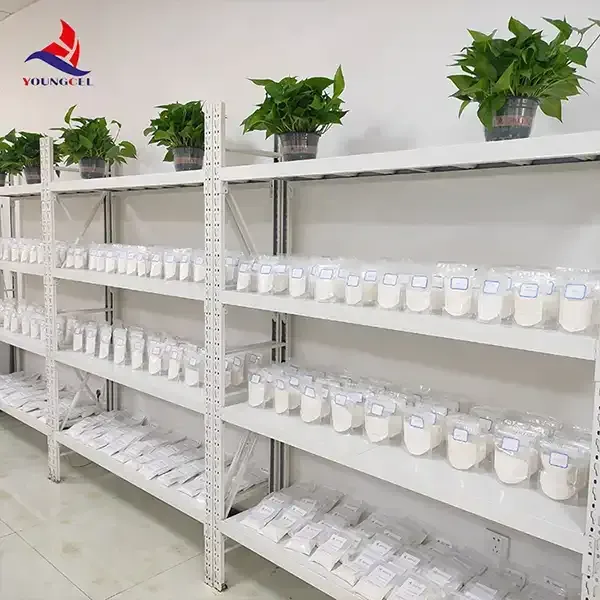The Role of Construction Gypsum Powder in Modern Building Materials
Construction gypsum powder, derived from the mineral gypsum, plays an essential role in the construction industry. Not only is it an important material in the production of drywall and plaster, but it also serves as a versatile ingredient in various building applications. Understanding the properties, production processes, and applications of construction gypsum powder can provide valuable insights into its significance in contemporary construction.
What is Construction Gypsum Powder?
Gypsum, chemically known as calcium sulfate dihydrate (CaSO₄·2H₂O), is a naturally occurring mineral composed of calcium sulfate and water. Upon heating, gypsum loses water and transforms into construction gypsum powder, also known as calcined gypsum or plaster. This powder is characterized by its fine texture, lightweight nature, and excellent binding properties, making it a popular choice for various construction applications.
Production Process
The production of construction gypsum powder involves several steps. First, natural gypsum ore is mined from deposits and subjected to calcination—a process of heating the ore to temperatures between 150°C to 180°C. This process removes a portion of the water content, resulting in a fine, white powder. The quality of gypsum powder can vary based on the purity of the raw materials and the specific manufacturing process employed. To ensure high-quality gypsum powder, manufacturers often adhere to strict standards and conduct numerous quality checks throughout the production process.
Applications of Construction Gypsum Powder
1. Drywall Production One of the primary uses of construction gypsum powder is in the production of drywall or gypsum board. This material is widely used for wall and ceiling construction due to its fire-resistant properties, sound insulation capabilities, and ease of installation. Drywall made from gypsum is a preferred choice in residential and commercial buildings alike.
construction gypsum powder

2. Plastering Construction gypsum powder is commonly mixed with water to create a plaster that can be applied to walls and ceilings. Gypsum plaster provides a smooth finish, enhances aesthetic appeal, and can also improve thermal and acoustic insulation. Furthermore, gypsum plaster dries quickly, allowing for faster project completion.
3. Cement Additive In the production of Portland cement, construction gypsum powder is added to regulate the setting time of the cement. This application helps prevent the rapid hardening of cement, allowing builders to work with it more easily during construction.
4. Mortars and Renderings Gypsum powder is often included in mortar and rendering mixtures. It enhances the workability and adhesion of these materials, making them suitable for a variety of substrates. Additionally, gypsum-based mortars can resist shrinkage and cracking, further improving the durability of the finished product.
5. Agricultural Applications Interestingly, construction gypsum powder has uses beyond traditional building materials. It can also benefit agricultural practices by improving soil structure and providing essential calcium and sulfur nutrients. This application demonstrates the versatility of gypsum powder across different industries.
Environmental Considerations
As the construction industry increasingly seeks sustainable solutions, gypsum powder stands out as an environmentally friendly material. Its production involves minimal environmental impact compared to other building materials, and gypsum itself is a non-toxic, naturally occurring mineral. Furthermore, waste materials from the industrial processes can often be recycled back into gypsum production, thus promoting a circular economy.
Conclusion
In summary, construction gypsum powder is a fundamental material in modern construction, contributing significantly to the efficiency and sustainability of building practices. Its diverse applications in drywall production, plastering, cement additives, and more highlight its versatility and importance. With ongoing advancements in manufacturing processes and an increasing emphasis on sustainability, the role of gypsum powder in the construction industry is likely to become even more significant in the future. As builders and architects prioritize eco-friendly solutions, construction gypsum powder stands ready to meet these demands, reinforcing its position as a cornerstone of contemporary construction materials.
-
The Versatility of Industrial Additives: Mhec, Hpmc, And Wall Putty SolutionsNewsMar.28,2025
-
The Importance of HPMC in Modern IndustriesNewsMar.28,2025
-
Partnering with Reliable Manufacturers for Optimal ResultsNewsMar.28,2025
-
Enhancing Construction Performance with Redispersible Polymer PowdersNewsMar.28,2025
-
Enhancing Construction and Household Products with Advanced AdditivesNewsMar.28,2025
-
Building Strong Foundations with Key Construction MaterialsNewsMar.28,2025






